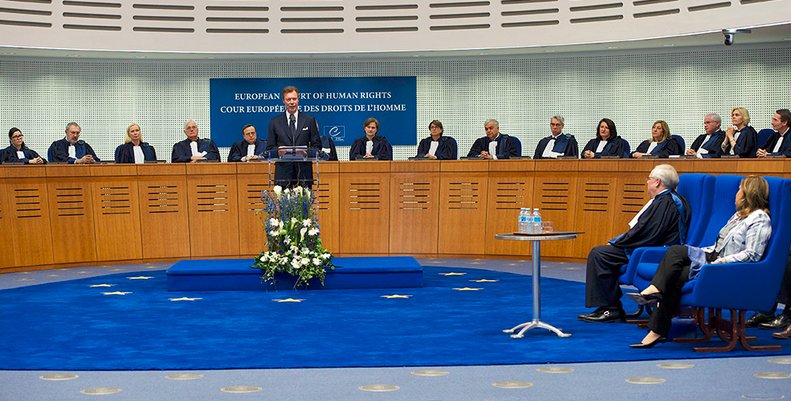Revealed: The EU won’t obey the ECHR but insists Brexit Britain must
Montage © Facts4EU.Org
This report has been co-published with our affiliated organisation, Brexit Facts4EU.Org. We are most grateful for their original research into the raw data which backs what follows.
Blatant hypocrisy – The EU insists it must have its ‘autonomy’ but denies the UK that same right
The truth about a foreign court which still overrules the UK’s Supreme Court
The Government scored a rare (partial) victory in the High Court on Monday, when it ruled in favour of the UK’s plan to send illegal migrants arriving from Macron’s France to Rwanda for processing.
Whilst this sounds positive, yet again it seems that NGOs will appeal to the Supreme Court and then to the mysterious body in France known as the European Court of Human Rights (ECHR) in Strasbourg.
One single unnamed ECHR judge sitting in France overruled the Supreme Court of the United Kingdom this year, preventing the Rwanda deportation flights from going ahead.
CIBUK.Org exposes the truth about the ECHR
How can the EU insist Brexit Britain obeys the ECHR when it has refused to sign up itself? In this report we summarise the illogical madness over who rules who in the EU’s world. Here are some facts about the ECHR which readers might wish to know.
Summary 1
The European Court of Human Rights – some basic facts
- The EU insists the UK submits to the rulings of the ECHR
- This is contained in the UK-EU Trade & Cooperation Agreement
- However the EU refuses to submit itself
- It is not possible to bring any legal case against the EU at the ECHR
- It is, however, possible to bring a legal case against the UK
- There are currently 11 cases pending against the UK
- There have been 936 cases in total against the UK
- Until March it was still possible for a Russian judge to rule on ‘human rights violations’ in the UK
The EU insists the UK submits to the ECHR but won’t submit itself
“At present, all 46 Council of Europe member states, including the 27 EU Member States, are already parties to the European Convention on Human Rights. However, the EU itself is not. This means that actions of the EU’s institutions, agencies and other bodies cannot currently be challenged at the European Court of Human Rights in Strasbourg.”
– European External Action Service (EU Commission), 18 Oct 2021
In its Opinion 2/13 of 18 December 2014, the Court of Justice of the EU (commonly known as the ECJ) held that the draft agreement of 2013 was incompatible with the EU Treaties. The most recent negotiating meeting took place on 10-13 May 2022 but still the EU is not subject to the rulings of the ECHR, unlike the UK.
Does the UK’s Supreme Court have to obey the ECHR? Yes
It has been suggested by some commentators that the UK does not have to obey the rulings of the ECHR, but merely to treat them as ‘advisory’. Below is what the ECHR has to say about this.
“[The Court’s] judgments are binding on the countries concerned and have led governments to alter their legislation and administrative practice in a wide range of areas.”
– ECHR document, accessed 14 Aug 2022
So, according to the court itself the rulings are indeed binding.
Summary 2
The European Court of Human Rights – the grandeur
© ECHR 2022 – click to enlarge
- ECHR is based in a grandiose suite of buildings in Strasbourg, France – purpose-built
- The whole thing cost a fortune, with over 300,000 sq ft of floor space
- Courtroom alone covers over 9,250 sq ft
- Context: That’s 12 times the size of the average UK property, for the main courtroom alone
[Sources: ECHR | EU Commission]
The ECHR is technically independent of the EU but….
It is often said that the ECHR is part of the Council of Europe, not the European Union. Technically this is true. However we invite readers to study the photograph below, which comes from the ECHR’s website.
© ECHR 2022 – click to enlarge
Originally the EU took the flag of the Council of Europe. As a component of that body the ECHR uses it. However, given all the connotations of that flag these days, readers might question why the carpet of the main judging chamber of the ECHR does not have an amalgam of all the flags of countries which are members, including the United Kingdom?
Putin’s Russia, ruling on UK ‘human rights violations’
Russia has long been a pariah state when it comes to human rights. The list of atrocities is endless. Readers will remember the killing in London by Russian security services of the dissident Alexander Litvinenko using a radioactive substance, to say nothing of the attack in Salisbury several years later.
Russia has also violated other nations’ territories (eg Crimea, Chechnya, Ukraine) in contravention of international law and yet it continued to be a member of the European Council and have a judge on the ECHR.
Finally this year, Russia was excluded. Incredibly, until March 2022 it was possible for a Russian judge to rule on ‘human rights violations’ in the UK.
‘Rule of law’? – What law?
The UK gave the world the Magna Carta, Habeas Corpus, and the principle of Common Law.
Conversely the ECHR operates under the principle of the Napoleonic code of Corpus Juris, where you are in essence assumed to be guilty, can be held in detention for very long periods, no right to silence, and none of the other rights which the British people take for granted.
Finally, the sole British judge on the ECHR was born and educated in Germany
CIBUK.Org has analysed the judges of the ECHR. We also looked at the ‘seniority’ as defined by the ECHR.

The sole British judge was born and educated in Germany and sits down at No. 21 in terms of preference, below the judge from the tiny country of Cyprus. He moved to the UK in 1988, after completing legal studies in Germany.
Photo left: Judge Eicke, the British judge
In 2016 ECHR judges were paid €200,000 per annum tax-free. In today’s terms in pounds for a normally-taxed person that would be the equivalent of around £300,000 per year.
Please support our work to help us to carry on
For the original report, click here : https://facts4eu.org/news/2022_dec_echr_nonsense

